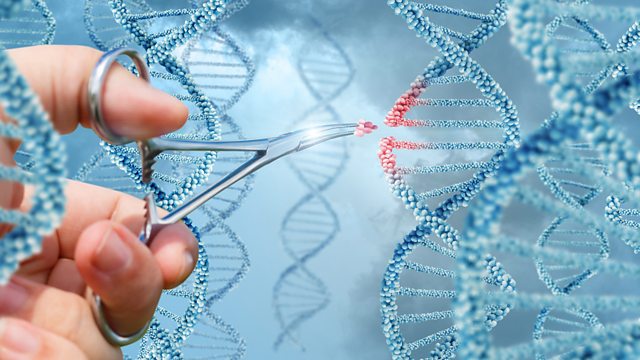
Crispr Gene Editing
Crispr gene editing; Children’s screen time; African swine fever; An atlas of soil bacteria; Virtual bucket lists; Surfers with E-coli
Scientists have found a worrying human immune response to the gene editing protein Cas9. With human trials of Crispr Cas9 on the cards, new research shows up to 70% of people have existing immune proteins and cells primed to target the Cas9 proteins. This could mean they might be immune to Crispr-based therapies or vulnerable to dangerous side effects. Roland Pease spoke to one of the authors of the report Professor Matthew Porteus from Stanford University in California.
Screen Time and Children
Many parents know how hard it is to separate children from technology – be it tablets, phones or TVs. Headlines warn parents of the risks – but how much evidence is there that screen time is harmful? Surprisingly little – according to researchers who have been meeting in London. Claudia Hammond talks to Pete Etchells, Reader in Psychology and Science Communication at Bath Spa University and Tamasin Greenough Graham from the Parenting Science Gang.
African Swine Fever
World animal health authorities are on high alert monitoring the recent spread of African swine fever across swathes of mainland Europe. Introduced from Africa into Georgia, the virus has continued to spread through neighbouring countries, then on to several Baltic states. The economic costs to the Baltic pig industry alone may be as high as 50 million Euros, and there are real fears that the virus may spread further. Jonathan Ball from the University of Nottingham is a Professor of Molecular Virology and wanted to find out more, so he talked to leading Africa swine fever expert Dr Linda Dixon from the Pirbright Institute in the UK.
Soil Bacteria Atlas
An assessment of soils across six continents reveals that very few bacterial taxa are consistently found. The work represents the first global atlas of soil bacteria. The results of this study hopefully mean we can narrow down the immense number of bacterial types to just a few, as the University of Manchester’s Richard Bardgett explained to Roland Pease.
VR Bucket List
Do you have a list of things you want to do before you die – like seeing the Pyramids or the Northern Lights? People living with a terminal illness might find travelling too difficult. So now a hospice in the UK is using virtual reality experiences to help people tick off some of their bucket list wishes, and studying the impact on patients. Katy Takatsuki reports.
Surfing or Swimming in Dirty Water
If you like surfing or swimming in the sea you may want to know how clean the water is. Researchers in the UK have made a troubling discovery – that some surfers had ingested E.coli bacteria – and even worse, they were the kind that are resistant to a common antibiotic. Claudia Hammond talks to Dr Anne Leonard from Exeter Medical School.
(Image caption: Hand inserts a molecule into DNA – credit: Getty Images)
The Science Hour was presented by Claudia Hammond with comments from ���˿��� Health and Science reporter Helen Briggs
Producer: Katy Takatsuki
Last on
More episodes
Broadcast
- Sat 20 Jan 2018 12:06GMT���˿��� World Service Americas and the Caribbean
Podcast
-
![]()
Unexpected Elements
The news you know, the science you don't

